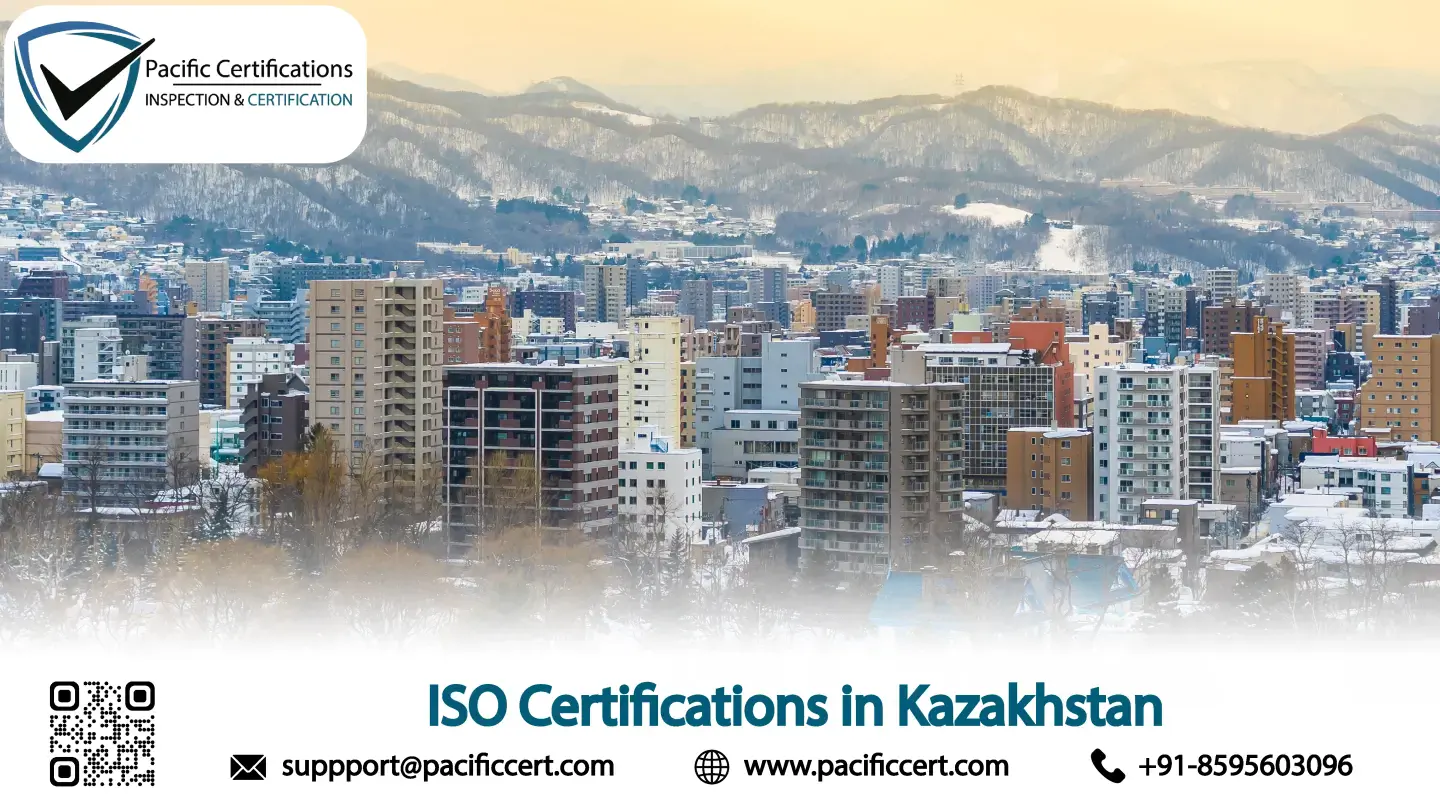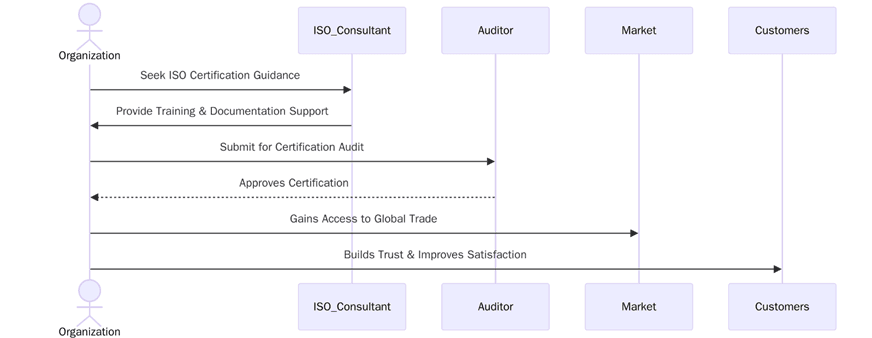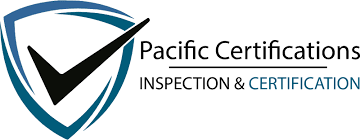ISO Certifications in Kazakhstan, Popular Standards, Requirements and Benefits

Introduction
Kazakhstan’s economy spans upstream hydrocarbons, metals and mining (copper, uranium, ferroalloys and emerging battery minerals), agrifood and processing, construction and infrastructure, logistics on the Middle Corridor, healthcare and laboratories and a fast-developing digital/outsourcing sector across Almaty, Astana, Atyrau, Aktau and Shymkent. By adopting standards such as ISO 9001 (Quality Management), ISO 14001 (Environmental Management) and ISO 45001 (Occupational Health & Safety), companies in Kazakhstan can improve efficiency, reduce waste and earn trust from partners and regulators. For growing sectors like ICT, construction and agriculture, ISO certification has become a practical step toward attracting international clients and competing confidently in global markets. These programs provide verifiable assurance on quality, safety, environment, information security and continuity that buyers and lenders accept across Central Asia, the EU and global markets.
Reach out to Pacific Certifications for ISO certification in Kazakhstan and get an accreditation-backed proposal with defined scope, audit days and timelines.
Economic Context & Industry Overview
Kazakhstan is Central Asia’s largest economy, with hydrocarbons and mining anchoring exports and public revenue. Supply chains are re-routing via the Trans-Caspian “Middle Corridor,” while domestic policy is pushing energy efficiency, renewables and digital public services. Across these sectors, major buyers, lenders and regulators increasingly expect auditable management systems for supplier approval, tenders and due diligence.
Why ISO certification matters in Kazakhstan?
Export-facing miners, EPC contractors, utilities and public projects want documented controls that reduce defects, incidents and downtime and that withstand customer or regulator audits. ISO provides a common assurance language to shorten vendor approval, demonstrate legal compliance, stabilize yield on precision lines, improve site safety and environmental performance, protect data and uptime for finance/telecom/cloud and deliver HACCP-based traceability for food chains. Certification also organizes records—policies, KPIs, competence, risk files and corrective actions, so reviews by customers, regulators and lenders move faster and more predictably.
Popular ISO Standards in Kazakhstan
Certification Process in Kazakhstan
Preparation starts with an honest view of how work runs today and how evidence is captured. The aim is to make your system auditable without reinventing daily routines. Below are the steps to consider:
List products services sites headcount and high-risk processes for clear scope
Map processes end to end to show handoffs records and responsibilities
Set policy and measurable objectives linked to customer and legal needs
Assemble evidence packs for production maintenance labs IT and logistics
Train process owners keep competence matrices and attendance records current
Calibrate instruments verify methods and file certificates for quick checks
Run internal audits that sample high-risk tasks and supplier interfaces
Hold management review with KPIs audit results complaints legal updates and actions
Schedule Stage 1 for readiness and Stage 2 for implementation verification align multi-site sampling to risk
Blend on-site checks with remote interviews where suitable to reduce travel time
Keep permits licenses and regulatory reports organized for quick verification
What are the requirements of ISO Certifications in Kazakhstan?
Build the system around how work actually runs on lines, sites, camps, clinics and data rooms and align with Kazakh norms so evidence stands up in audits, inspections and buyer reviews; below are the key requirements:

Scope that matches products/services, processes and sites (single or multi-site).
Documented system with controlled procedures and records that match practice.
Risk assessment with controls reflecting real hazards (process safety, lifting, confined spaces, environmental aspects, privacy/security, energy) and change management.
Competence matrices and training records for process owners and high-risk roles.
Internal audits with reports, nonconformities, root-cause actions and verified closures.
Management review with inputs (KPIs, audits, complaints/incidents, legal updates) and tracked decisions.
Standard-specific artefacts: HACCP & CCP logs (ISO 22000), Statement of Applicability & risk files (ISO/IEC 27001), HIRA & PTW (ISO 45001), aspect-impact registers & objectives (ISO 14001), energy review & EnPIs (ISO 50001).
Legal/other requirements register with permits, inspections, calibrations, monitoring data and supplier compliance evidence.
Tip: Map controls to environmental permits/monitoring, industrial safety and labour rules, food/phyto requirements for exports and personal data law (2013) and guidance; keep calibration certificates, energy/emissions data, cold-chain logs and supplier test reports ready for sampling.
What are the benefits of ISO Certifications in Kazakhstan?
Use certification to unlock supplier status with majors and EPCs, pass public procurement checks and stabilize operations across sites; below are the key benefits:

Faster prequalification in buyer portals and public tenders
Fewer incidents, defects and unplanned stoppages on lines and projects
Clear roles and competence paths for critical operations and maintenance
Traceable data for warranty, claims, ESG and due diligence
Better supplier control through audits, KPIs and corrective actions
Measured gains in energy use, waste, emissions, uptime and yield
Stronger brand signals for regional and international markets
Market Trends
Looking to 2027–2030, two forces are poised to accelerate ISO adoption in Kazakhstan. First, the country’s long-term Carbon Neutrality Strategy (net-zero by 2060, with interim 2030 targets) is pushing utilities, oil & gas and heavy industry to formalize energy and EHS controls driving broader uptake of ISO 50001 to manage energy performance and ISO 14001/ISO 45001 to evidence emissions, environmental compliance and worker safety as plants modernize and decarbonize. (source: UNFCCC) Second, Kazakhstan’s bid to carve out a reliable niche in global battery and critical-minerals supply chains from new exploration licenses to upgraded processing for materials used in EVs and electronics, raises the bar on auditable quality, safety, environment and chain-security practices across mines, concentrators, smelters and the Middle Corridor logistics spine, reinforcing demand for ISO 9001/14001/45001/28000 and, for resilience, ISO 22301. (Source: reuters.com)
Challenges Faced in Kazakhstan
Operational, regulatory and evidence-readiness issues related to getting certified can cause delays—budget constraints and staffing gaps, incomplete or outdated documentation and records, weak internal audits and corrective actions, supplier-control gaps, multi-site sampling and travel logistics (including remote locations), calibration and permit backlogs and data/privacy mapping for ICT; below are the key challenges:
Budgeting for certification fees, audit time and ongoing system maintenance
Perception of ISO as compliance rather than a performance tool in some teams
Shortage of seasoned internal auditors and process owners outside major hubs
Stalling on document control, internal audits and corrective-action discipline
Multi-site and supplier sampling (e.g., mine-to-smelter chains) complicating logistics and evidence quality
What is the cost of certification in Kazakhstan?
Certification fees are confirmed after scoping and reflect headcount and risk, the number and spread of sites (e.g., Almaty/Astana/Atyrau/Aktau), your standards set (single vs. integrated such as 9001+14001+45001), sector sampling depth (process plants and pipelines vs. offices) and travel/logistics. Your proposal itemizes Stage 1, Stage 2 and surveillance days, clarifies on-site versus remote activities and highlights any multi-site efficiencies so budgets remain transparent and predictable.
For personalized quote, contact [email protected].
What is the timeline for certification in Kazakhstan?
Timelines depend on document and record readiness, the speed of closing any Stage-1 findings, whether you are single- or multi-site and whether the program is single-standard or integrated. Coordinating audit windows around shutdowns, production ramps, seasonal conditions and auditor travel to regional sites also affects duration. A well-prepared single site can progress from application to decision within one audit cycle; multi-site or integrated programs typically require additional planning and sampling time.
How Pacific Certifications can help?
Pacific Certifications audits and certifies ISO management systems for mining and metals, oil & gas and pipelines, manufacturing and construction, agrifood and cold chain, logistics and ports, healthcare, utilities and energy and ICT/cloud across Kazakhstan. We work under recognized accreditation with transparent pricing and an experienced local team that understands site realities and buyer expectations. Our certificates are accepted by procurement portals and international customers and we are recognized by ABIS.
Request your ISO audit plan and fee estimate. We will help you map Stage 1 and Stage 2 timelines and evidence requirements for your organization. Contact us at [email protected] or visit www.pacificcert.com.
Accredited Training Programs
Pacific Certifications provides accredited training programs in Kazakhstan for ISO 9001, ISO 14001, ISO 45001, ISO 22000/FSSC 22000, ISO/IEC 27001, ISO 22301 and ISO/IEC 20000-1.
Lead Auditor Training: for professionals auditing these systems across Kazakh industries.
Lead Implementer Training: for personnel establishing or improving systems in plants, sites, cold chains, hospitals, utilities and ICT platforms.
These programs are conducted online or onsite, depending on client needs under ISO/IEC 17024 for personnel certification.
Contact us
If you need support with ISO Certifications in Kazakhstan, contact us at [email protected]or +91-8595603096.
Author: Ashish
Read More at: Blogs by Pacific Certifications

